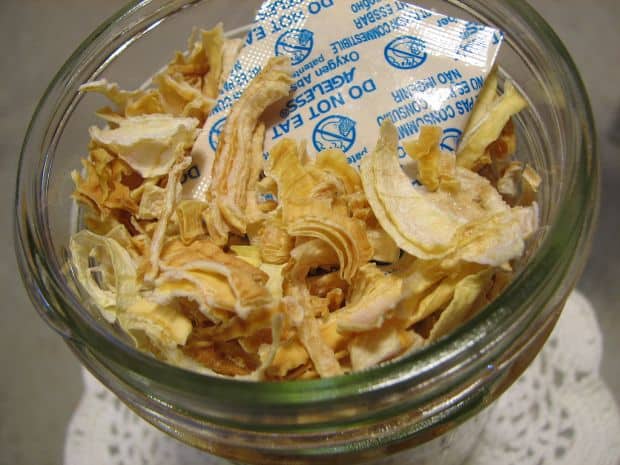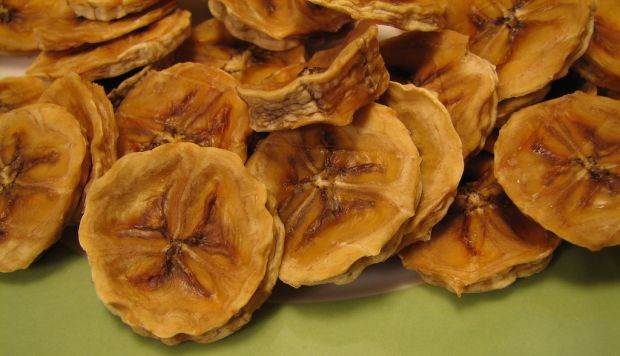Dehydrated foods have been popular in cultures around the world for millennia principally because they are an accessible and reliable way to achieve preservation for long journeys while maintaining nutritional value. And they generally taste good!
It stands to reason that preppers today would love dehydrated foods for the same reasons, but in the grand scheme of things dehydrated food is definitely not the norm as a regular component of most modern diets.

Is dehydrated food good for you in the long run? Yes, dehydrated food is generally healthy, so long as it was healthy in its original form. Compared to most processed foods and snacks dehydrated options are most often superior. However, dehydrated foods contain more calories, sugar and sodium than their un-dehydrated counterparts, meaning it’s easier to overdo it if consuming dehydrated foods regularly.
There is quite a bit to consider when choosing to incorporate dehydrated foods as a regular part of your diet, and we will help you sort through all of these considerations and the rest of the article.
Pro: 100% Natural Preservation
Assuming you are dehydrating food yourself, you can be assured that your food is preserved and ready for an extended shelf or storage life with absolutely no artificial additives.
Compared to the average label on store-bought foods that reads like the index to a science textbook, your dehydrated meal options or snacks will only contain exactly what they are and what ingredients you have added, nothing else.
If you are following a specialty diet, dietary lifestyle or just particular meal programming this is a Godsend as it affords you total control over preparation and preservation, and particularly gives you a major advantage for creating convenient, tasty snacks that often have no healthy equivalent in the vast majority of grocery stores.
Con: High Calorie by Weight
Dehydration is simply the process by which water is removed from food. The end result is a food product that is either drastically smaller and very dense or light, crispy and desiccated.
This is because a significant fraction of a given portion of most foods’ weight is made up of water- moisture. Remove this moisture and a given portion gets lighter.
What does not disappear in the process is the portion’s calories. Essentially, you’ll be eating less of a given food by weight, but gobbling up a higher ratio of calories in the bargain.
Let me explain it another way. Let us say that a portion of sliced apples weighs about 8 oz, and contains 70 calories.
Once dehydrated, the apple could lose upwards of 75% of its weight due to water loss alone. Now you have a 2 oz portion of apples that contains, you got it, 70 calories.
This is an important dynamic to understand because the weight of a food, in particular its water content, are significant factors for satiation of appetite.
If you have a bowl full of fresh apple slices in front of, you chances are you might only get through one or two apples before your stomach signals you are getting full. That might tally anywhere from 70 to as much as 140 calories.
The same bowl that is full of dehydrated apple slices will probably see you munching through those things like a man possessed, and you could easily consume four times as many calories before you feel full.
Dangerous stuff if you are on a diet!

Pro: Maintains Maximum Nutrition
Dehydrating is an excellent method of preservation when you want to preserve and maintain as much of food’s nutritional attributes as possible.
Many vitamins, minerals and other healthy stuff are easily destroyed by the application of high heat, and that will be avoided using typical dehydration techniques which rely on very low heat over a long period of time.
Not all vitamins survive the dehydration process completely intact, namely vitamins C and to a lesser extent A, but the vast majority will, and many minerals also, to boot.
It is worth mentioning that store-bought dehydrated foods and snacks often have additional chemical additives intended to stop the loss of vitamins and this “feature” is commonly touted as a selling point over home dehydrated food.
What they won’t tell you, however, is that these additives often keep vitamins intact at the cost of other minerals, so in the end you are robbing Peter to pay Paul. Whether or not this is a concern or even benefit depends on your specific dietary needs and meal planning.
Generally speaking, you can be assured that the vast majority of food suitable for dehydration will maintain the lion’s share of their nutritional profile compared to other methods of preservation.
Con: May Require Reconstitution
Not all dehydrated foods are ready to eat as they are.
Sure, the vast majority of our typical dehydrated fruits, veggies and even the occasional astronaut ice cream bar are ready to go whenever our snack attack hits, but for other meal options and even many staples like beans you might be facing a lengthy soak in boiling water or just a considerable amount of time before they are ready to consume.
This is rarely more than an inconvenience at best when eating at home or on a pleasure excursion but during a legitimate survival situation or long-term SHTF scenario this could require too much water and too much fuel in the bargain.
Think carefully about advantages in portability, weight savings and convenience before committing to any great quantity of dehydrated food.
If the vast majority of your selections require significant preparation you should ensure they don’t have the additional resources to spare that are required to make it ready to eat.
You Can Eat It… But Don’t Overdo It
Dehydrated foods are generally healthy so long as careful attention is paid to portion size.
Because dehydrated foods lose a considerable amount of water weight, they are less filling then their original form. This can result in overeating easily, especially with tasty, snack-sized morsels that are typical of dehydrated fruit, veggies and meats.
But, so long as they are consumed intelligently there is much to commend dehydrated food in terms of longevity and portability but also in taste and convenience.

Tom Marlowe practically grew up with a gun in his hand, and has held all kinds of jobs in the gun industry: range safety, sales, instruction and consulting, Tom has the experience to help civilian shooters figure out what will work best for them.
